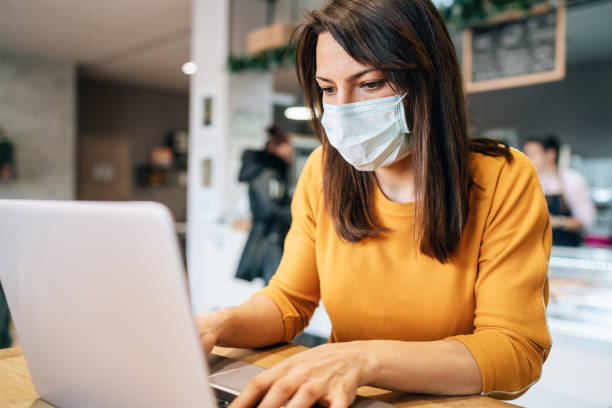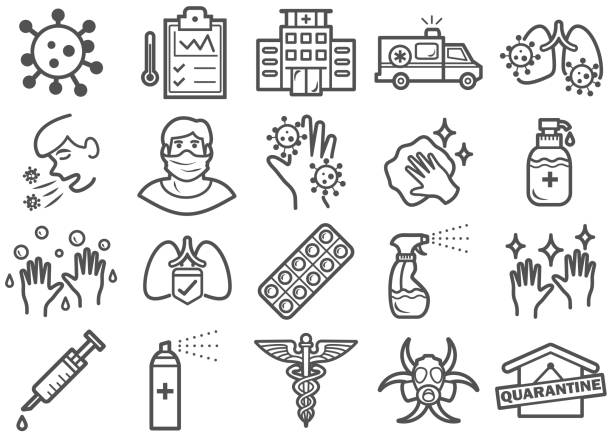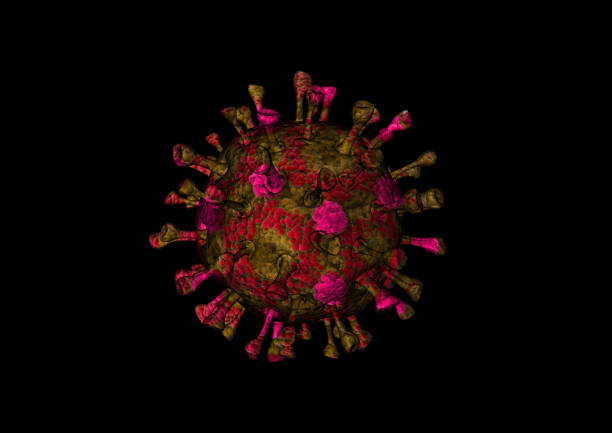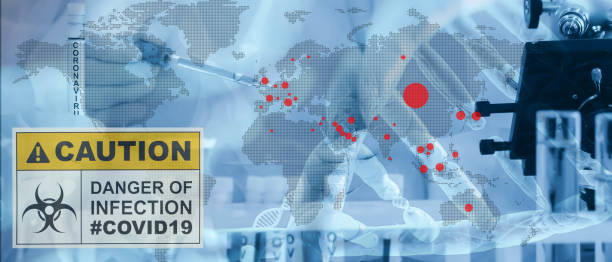Title: The Race for Effective Coronavirus Medicine: A Comprehensive Overview
In the wake of the unprecedented global pandemic caused by the novel coronavirus, scientific communities around the world have been engaged in a fervent race to develop effective treatments. The urgent need for a reliable coronavirus medicine has driven researchers to explore a variety of approaches, ranging from repurposing existing drugs to developing entirely novel therapeutic agents. This article provides a comprehensive overview of the various strategies being pursued in the quest for a potent coronavirus medicine.
Repurposing Existing Drugs:
One strategy that has gained significant attention is the repurposing of existing drugs that were originally developed to treat other illnesses. This approach capitalizes on the knowledge and safety profiles of these drugs, potentially expediting the regulatory approval process. Prominent among these repurposed drugs is Remdesivir, originally developed to combat Ebola. Remdesivir inhibits the replication of the coronavirus within human cells, showing promise in reducing the severity and duration of COVID-19 symptoms. Another notable contender is Hydroxychloroquine, a drug used to treat malaria and autoimmune disorders. Despite early optimism, subsequent studies cast doubts on its efficacy, leading to a more cautious stance on its use.
Monoclonal Antibody Therapies:
Monoclonal antibodies have emerged as a cutting-edge avenue for coronavirus treatment. These laboratory-produced molecules mimic the immune system's ability to fight off pathogens. Regeneron's casirivimab and imdevimab cocktail, as well as Eli Lilly's bamlanivimab and etesevimab combination, have both received emergency use authorization from regulatory bodies. These therapies, administered through infusion, target specific regions of the virus and have demonstrated effectiveness in reducing hospitalizations and mortality rates, particularly in high-risk individuals.
Vaccine-Derived Antibodies:
Convalescent plasma therapy involves collecting blood plasma from individuals who have recovered from COVID-19 and transferring their virus-neutralizing antibodies to patients currently battling the disease. While this approach shows promise, it is dependent on the availability of donors and the consistency of antibody levels in the collected plasma. This treatment method highlights the importance of vaccine development as a means to stimulate a broader population's antibody response against the virus.
Antiviral Medications:
In the pursuit of direct-acting antiviral medications, researchers are focusing on inhibiting specific viral enzymes critical for replication. Molnupiravir, an experimental oral medication, works by introducing mutations into the viral RNA during replication, leading to the accumulation of errors and rendering the virus nonfunctional. Clinical trials have demonstrated its potential to reduce viral loads and improve clinical symptoms, raising hopes for an effective oral treatment against COVID-19.
Immunomodulatory Drugs:
Severe cases of COVID-19 often involve an overactive immune response that leads to widespread inflammation and tissue damage. To counteract this, immunomodulatory drugs are being explored to regulate the immune system's response. Tocilizumab, originally designed for rheumatoid arthritis, targets interleukin-6, a cytokine involved in inflammation. It has shown promise in reducing the risk of death and the need for mechanical ventilation in critically ill COVID-19 patients.
Emerging Technologies:
Beyond traditional pharmaceutical approaches, emerging technologies such as RNA-based therapies have gained traction. mRNA vaccines, exemplified by the Pfizer-BioNTech and Moderna vaccines, instruct cells to produce a harmless piece of the virus, triggering an immune response. These breakthroughs have showcased the potential of leveraging genetic material to combat infectious diseases rapidly.
Challenges and Ethical Considerations:
While the progress in coronavirus medicine is promising, numerous challenges and ethical considerations remain. Ensuring equitable access to treatments on a global scale is a significant hurdle. Additionally, the rapid pace of development and emergency authorizations have raised concerns about the thoroughness of safety and efficacy evaluations.
Conclusion:
The quest for an effective coronavirus medicine has prompted researchers to explore diverse avenues, from repurposed drugs to cutting-edge biotechnologies. While challenges persist, the collective efforts of the scientific community have yielded a range of potential treatment options. As the pandemic evolves, the lessons learned from this intense research endeavor will undoubtedly shape the future of medicine and our preparedness for emerging infectious diseases.
In the wake of the unprecedented global pandemic caused by the novel coronavirus, scientific communities around the world have been engaged in a fervent race to develop effective treatments. The urgent need for a reliable coronavirus medicine has driven researchers to explore a variety of approaches, ranging from repurposing existing drugs to developing entirely novel therapeutic agents. This article provides a comprehensive overview of the various strategies being pursued in the quest for a potent coronavirus medicine.
Repurposing Existing Drugs:
One strategy that has gained significant attention is the repurposing of existing drugs that were originally developed to treat other illnesses. This approach capitalizes on the knowledge and safety profiles of these drugs, potentially expediting the regulatory approval process. Prominent among these repurposed drugs is Remdesivir, originally developed to combat Ebola. Remdesivir inhibits the replication of the coronavirus within human cells, showing promise in reducing the severity and duration of COVID-19 symptoms. Another notable contender is Hydroxychloroquine, a drug used to treat malaria and autoimmune disorders. Despite early optimism, subsequent studies cast doubts on its efficacy, leading to a more cautious stance on its use.
Monoclonal Antibody Therapies:
Monoclonal antibodies have emerged as a cutting-edge avenue for coronavirus treatment. These laboratory-produced molecules mimic the immune system's ability to fight off pathogens. Regeneron's casirivimab and imdevimab cocktail, as well as Eli Lilly's bamlanivimab and etesevimab combination, have both received emergency use authorization from regulatory bodies. These therapies, administered through infusion, target specific regions of the virus and have demonstrated effectiveness in reducing hospitalizations and mortality rates, particularly in high-risk individuals.
Vaccine-Derived Antibodies:
Convalescent plasma therapy involves collecting blood plasma from individuals who have recovered from COVID-19 and transferring their virus-neutralizing antibodies to patients currently battling the disease. While this approach shows promise, it is dependent on the availability of donors and the consistency of antibody levels in the collected plasma. This treatment method highlights the importance of vaccine development as a means to stimulate a broader population's antibody response against the virus.
Antiviral Medications:
In the pursuit of direct-acting antiviral medications, researchers are focusing on inhibiting specific viral enzymes critical for replication. Molnupiravir, an experimental oral medication, works by introducing mutations into the viral RNA during replication, leading to the accumulation of errors and rendering the virus nonfunctional. Clinical trials have demonstrated its potential to reduce viral loads and improve clinical symptoms, raising hopes for an effective oral treatment against COVID-19.
Immunomodulatory Drugs:
Severe cases of COVID-19 often involve an overactive immune response that leads to widespread inflammation and tissue damage. To counteract this, immunomodulatory drugs are being explored to regulate the immune system's response. Tocilizumab, originally designed for rheumatoid arthritis, targets interleukin-6, a cytokine involved in inflammation. It has shown promise in reducing the risk of death and the need for mechanical ventilation in critically ill COVID-19 patients.
Emerging Technologies:
Beyond traditional pharmaceutical approaches, emerging technologies such as RNA-based therapies have gained traction. mRNA vaccines, exemplified by the Pfizer-BioNTech and Moderna vaccines, instruct cells to produce a harmless piece of the virus, triggering an immune response. These breakthroughs have showcased the potential of leveraging genetic material to combat infectious diseases rapidly.
Challenges and Ethical Considerations:
While the progress in coronavirus medicine is promising, numerous challenges and ethical considerations remain. Ensuring equitable access to treatments on a global scale is a significant hurdle. Additionally, the rapid pace of development and emergency authorizations have raised concerns about the thoroughness of safety and efficacy evaluations.
Conclusion:
The quest for an effective coronavirus medicine has prompted researchers to explore diverse avenues, from repurposed drugs to cutting-edge biotechnologies. While challenges persist, the collective efforts of the scientific community have yielded a range of potential treatment options. As the pandemic evolves, the lessons learned from this intense research endeavor will undoubtedly shape the future of medicine and our preparedness for emerging infectious diseases.




